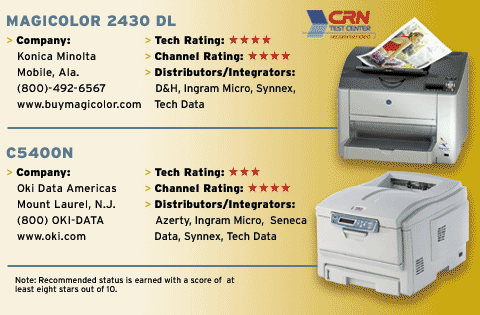Sun, HP Push Opteron Servers; IBM Hangs Back
Last week, in conjunction with Advanced Micro Devices' rollout of 852, 252 and 152 processors, Sun and HP introduced hardware based on the latest chips.
As part of its new Opteron portfolio, HP, Palo Alto, Calif., rolled out its first Opteron-based blade servers and workstation, as well as a sister server, the ProLiant DL385, to its popular two-way Xeon-based server, the ProLiant DL380. The new BL25p and BL35p blades and the DL385 will be available at the end of March. The workstation is already available. All of the new servers will run either Linux or Windows.
Sun, Santa Clara, Calif., plans to release new versions of its current Sun Fire v20z and v40z Opteron-based servers that support the new AMD 252 chip and will update its Java workstations. All of the new hardware will be available by the end of March and will run either Windows, Solaris or Linux.
IBM, Armonk, N.Y., meanwhile, plans to support the new AMD processors by shipping its e326 two-way Opteron server supporting the 252 chip in early March, said Tim Dougherty, director of IBM eServer BladeCenter marketing. IBM also plans to update its Opteron workstation, the A-Pro Intelli-Station, with the 252 chips but did not offer a time frame.
The e326 and workstation are the only two Opteron products IBM currently ships, and the vendor has not said it will add to the line, according to Dougherty. "It depends on what the marketplace tells us," he said.
While IBM hedges its bets, HP and Sun said they are seeing interest in Opteron servers to run certain memory-dependent applications because in some instances there can be a 20 percent or more performance improvement over Intel Xeon, said Paul Miller, vice president of marketing for HP ProLiants and BladeSystems.
Sun remains probably the strongest supporter of Opteron, particularly since it discontinued its Intel-based servers in January. The vendor also is gearing up to unveil a next-generation line of Opteron-based high-end, midrange and low-end servers later this year as part of its Galaxy project, sources recently told CRN.
The new Galaxy servers, the result of work that Sun co-founder Andy Bechtolsheim has been doing since he returned to Sun a year ago, will include eight-way Opteron servers on AMD dual-core chips, which double each processor's performance, as well as two-way and four-way servers.
The new Galaxy line should give customers that are running competitors' hardware a compelling reason to take another look at Sun, said a Sun solution provider familiar with the new line but who asked not to be identified.
"With Andy doing his magic, you'll have boxes that architecturally are probably a lot more intelligent than most of the other volume boxes out there," said the solution provider. "How can people buying x86 not only take a hard look at Sun's Opteron systems, but take a hard look at Opteron running Solaris?"
At the same time Sun is beefing up its portfolio of rack-mountable Opteron servers, its blade strategy leaves much to be desired. Sun recently ended the life of its current blade servers, built on both Sun UltraSPARC and Opteron chips, in favor of a next-generation product leveraging Galaxy technology that won't be available until next year.
"Sun has had its challenges [with its blades] and is trying to reinvent itself," said Bob Venero, president and CEO of Future Tech Enterprise, a VAR in Holbrook, N.Y. "Hopefully, [Sun] will step up to the plate with ideas that will bring value to both partners and end users."
In the meantime, HP and IBM are interested in capitalizing on this hole in Sun's portfolio. HP's Miller and IBM's Dougherty said they have seen a lot of business from customers migrating from running Solaris on Sun's blade servers to running Linux on HP or IBM blades.
